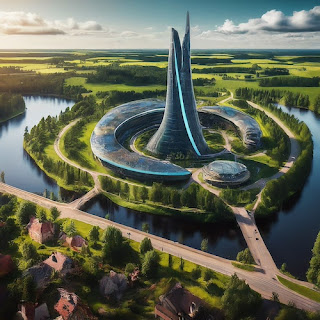Immersive Historical Experiences in Latvia
Immersive Historical Experiences in Latvia: A Journey Through Time
Latvia, with its rich history and cultural heritage, offers a wealth of opportunities for immersive historical experiences. By leveraging cutting-edge technologies like augmented reality (AR) and virtual reality (VR), Latvia can create captivating and informative encounters with its past.
AR and VR Experiences:
- Historical Reconstructions: AR and VR can be used to reconstruct historical sites, allowing visitors to visualise how they appeared centuries ago. By overlaying digital information onto real-world environments, tourists can explore ancient ruins, castles, and other landmarks in a new and engaging way.
- Interactive Historical Figures: Virtual historical figures can be brought to life through AR and VR experiences. Visitors can engage in conversations with these figures, learn about their lives and times, and gain insights into historical events.
- Simulated Historical Events: AR and VR can be used to create simulated historical events, such as battles, festivals, or significant moments in Latvia's history. Participants can immerse themselves in these experiences, gaining a deeper understanding of the context and significance of these events.
Benefits for Tourists and Locals:
- Enhanced Tourism: Immersive historical experiences can attract tourists seeking unique and authentic experiences. By offering visitors the opportunity to interact with history in a more engaging way, Latvia can boost its tourism industry.
- Educational Opportunities: These experiences can serve as educational tools for both tourists and locals. By making history more accessible and engaging, AR and VR can help people learn about Latvia's past and appreciate its cultural heritage.
- Economic Development: The development of immersive historical experiences can create new jobs and stimulate economic growth in the tourism and technology sectors.
Future Tips:
- Collaboration with Historians and Experts: To ensure the accuracy and authenticity of immersive historical experiences, it is essential to collaborate with historians, archaeologists, and other experts.
- Accessibility: These experiences should be accessible to people with disabilities. This can be achieved by incorporating features such as captions, audio descriptions, and tactile elements.
- Continuous Innovation: As technology evolves, Latvia can continue to innovate and develop new immersive historical experiences to keep visitors engaged and excited.
By embracing AR and VR technologies, Latvia can offer its citizens and visitors a truly unforgettable journey through its rich history. These immersive experiences have the potential to enhance tourism, education, and economic development while preserving Latvia's cultural heritage for future generations.




